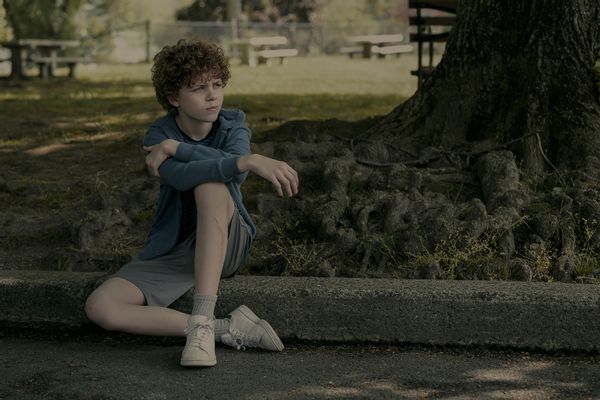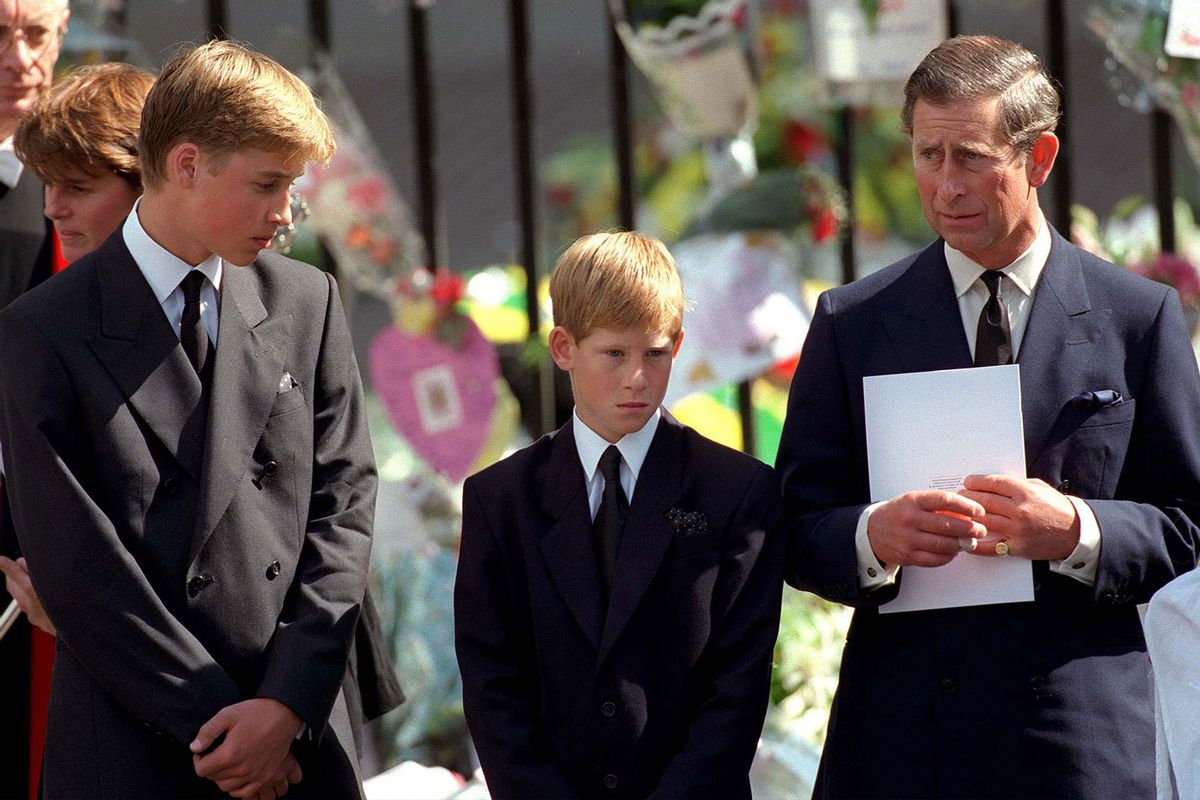I know I wasn't supposed to, but the second time I watched the emotionally disemboweling prestige weeper "Dear Edward," the Apple TV+ adaptation of Ann Napolitano's best-selling 2020 novel, I thought of Prince Harry.
"Spare," Harry's memoir, had just come out, and the parallels between real-life Harry's and fictional Edward's experiences struck me. At age 12, both boys lost their mothers in a crash, although Edward felt the exponentially larger wallop of losing his entire family in the plane crash of which he was the sole survivor. (Napolitano, an executive producer of the series, has said that her novel was inspired by a real Dutch boy who alone survived a plane crash in 2010.)
There's more. Both 12-year-old boys had one older brother. Both boys received ghoulish media attention following their losses. And both boys indulged in magical thinking to help mitigate their grief: Edward sees and chats with his dead older brother, Jordan; Harry convinced himself that his mother, Diana, Princess of Wales, was only pretending to be dead ("Her life's been miserable, she's been hounded, harassed, lied about, lied to. So she's staged an accident as a diversion and run away . . . Of course!").
If Harry's experience is any gauge, rarified though its particulars are, "Dear Edward" gets grief, and especially children's grief, right.
As I rewatched "Dear Edward," I took note of how the grown-ups in the kid's life measured up to those in young Harry's.
If "Spare" can be said to have a thesis statement other than that the British press is an army of unconscionable goons, it's that the inattention to 12-year-old Harry's mental health back in 1997, when his mother died, set him on a course of panic attacks and anxiety that were finally alleviated when he turned to therapy as an adult. As I rewatched "Dear Edward," I took note of how the grown-ups in the kid's life measured up to those in young Harry's. In a sturdy series comprising a half-dozen stories centered on the plane-crash casualties' loved ones, the mismanagement of Edward's grief may be the only false note.
 Colin O'Brien in "Dear Edward" (Apple TV+)
Colin O'Brien in "Dear Edward" (Apple TV+)
Before their plane shattered in a Colorado field, Edward (Colin O'Brien), Jordan (Maxwell Jenkins), and their parents were headed to Los Angeles, where Edward's mother had accepted a screenwriting job; the whole family was relocating from Manhattan. When Edward is returned to the East Coast after the crash, he moves to Nyack, New York, to live with his mother's sister, Lacey (the faultless Taylor Schilling), and her husband, John (Carter Hudson, in a low-key but deceptively exacting performance).
When Edward first pulls up to the house in the series's second episode, a phalanx of lookie-loos and press people stick cameras and microphones in his face and call him "Miracle Boy." Of course, for Harry the attention was on another scale entirely: "Willy and I walked up and down the crowds outside Kensington Palace, smiling, shaking hands . . . Hundreds and hundreds of hands were thrust continually into our faces, the fingers often wet" with tears. For both Harry and Edward, this sort of attention was unwanted and unhelpful: it reinforced that their loss was real.
"Grief is a thing best shared," Harry writes in "Spare" — it could be the tagline for "Dear Edward."
Over dinner, Lacey tells Edward that the airline will provide a psychologist to help him with what he's going through. Taking a cue from the spectral Jordan, who is seated beside him, Edward tells Lacey he'll think about it, the idea being that he won't, and his aunt and uncle seem to accept this. Later in the episode, when Lacey and John sit down with a doctor to discuss Edward's worrisome weight loss, it's treated as strictly a medical problem.
The absence of mental health support for Edward seems odd in a series in which the adults featured in its half-dozen stories meet at a grief group. "Grief is a thing best shared," Harry writes in "Spare" — it could be the tagline for "Dear Edward." Even my cursory bit of online sleuthing produces a wealth of bereavement group options for kids; did no one think to introduce Edward to the young Prince Harry equivalent of Nyack? (I also found myself wondering, Where are Edward's grandparents and cousins to help him cope?) This isn't late-1990s Britain; the social acceptance of therapy has only improved since young Harry first needed some.
To be sure, "Dear Edward" isn't asking viewers to believe that all the grown-ups in Edward's life are paragons of responsible adulthood. Lacey and John aren't certain they're doing the right thing by hiding the mail Edward receives from people in thrall to Miracle Boy. And Lacey is a snarly mess — because of her failed infertility treatments, because she's lost her sister. "I'm f**ked up," she admits to Edward in the second episode, and she's steadfast in her emotional availability to him — a step up from what the royals had to offer young Harry. But it's not enough: Edward is barely hanging on.
In "Spare," some tuned-in adults appeared when I least expected them. At Harry's school, there were letter-writing days, and following Diana's death, "the matrons asked me to write a 'final' letter to Mummy. I have a vague memory of wanting to protest that she was still alive . . . I probably dashed off something pro forma, saying I missed her, school was fine, so on and so forth . . . I remember, immediately thereafter, regretting that I hadn't taken the writing more seriously." Why didn't some adult suggest that Edward write his family a letter? There's no reason to believe he would have taken the suggestion — once again he might have said, "I'll think about it." But maybe he would have.
Want a daily wrap-up of all the news and commentary Salon has to offer? Subscribe to our morning newsletter, Crash Course.
It could be that "Dear Edward" neglects dear Edward's mental health out of narrative necessity: who wants to watch a series about a bereaved kid with a crack team of specialists and an ultra-capable extended family who help him effortlessly reintegrate into society? Still, the degree to which Edward was shortchanged defies plausibility. Maybe that's a quibble about a multifaceted drama that rewards repeated viewings. Among the bravura cast's standouts is the formidable Connie Britton as a well-heeled new widow who finds comfort in breaking things. If only someone had thought to hand Edward some fine china and pointed him at a wall.
"Dear Edward" releases new episodes Fridays on Apple TV+.



Shares